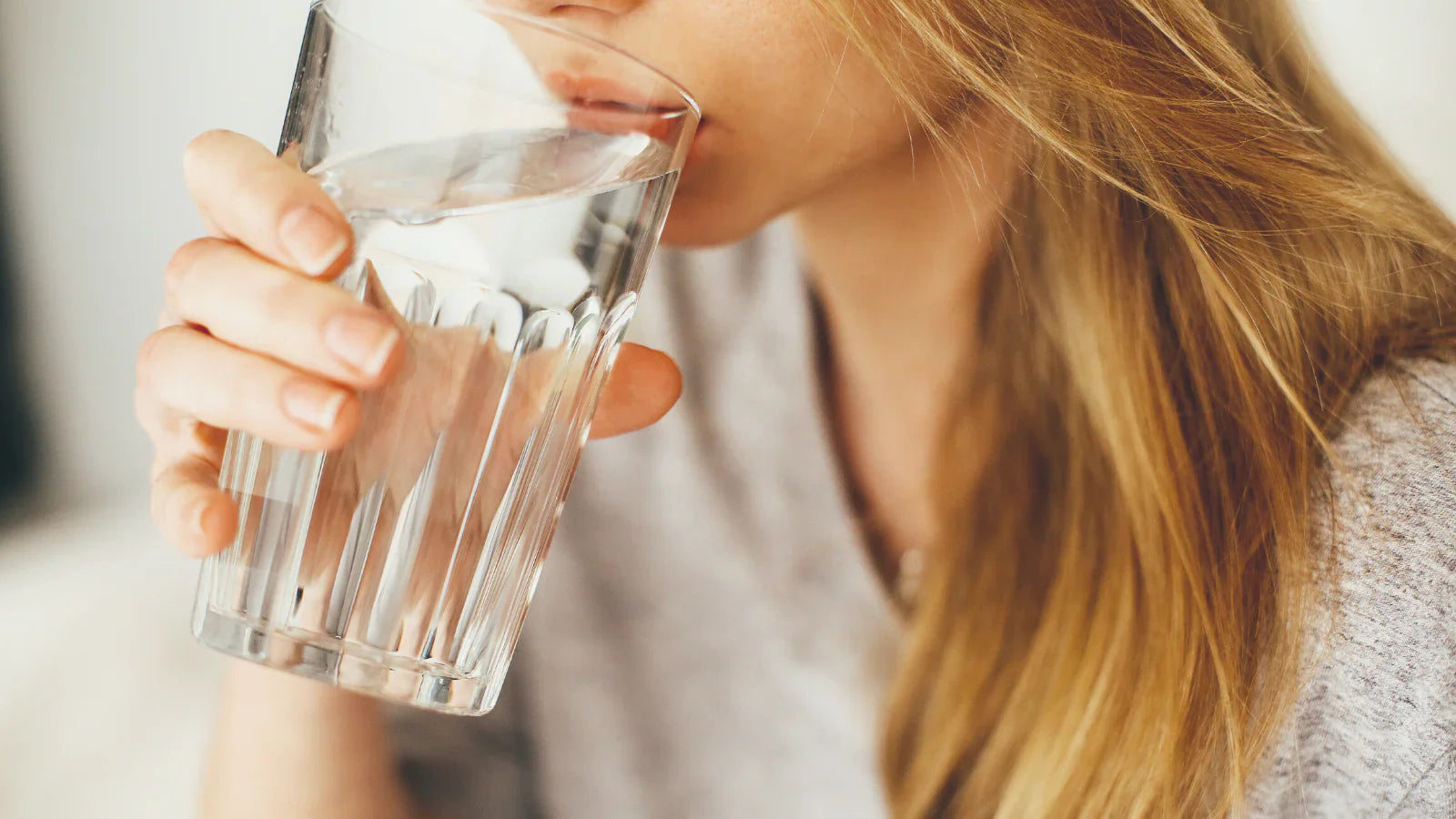Radiation therapy is one of the most powerful tools in cancer treatment—but it can also take a toll on your body.Fatigue, skin irritation, nausea, and nutrient depletion are common side effects, making it crucial to support your body through every stage of treatment.
At Rejûvaskin, we understand how demanding this process can be. That’s why we created our Skin Recovery Cream, developed specifically to soothe and protect skin affected by radiation therapy. But beyond skincare, your overall health plays a major role in how well your body responds to treatment.
We’ve put together a few science-backed tips to help you stay strong and feel better during radiation.
Tip #1: Stay Consistently Hydrated
Radiation therapy—especially for head, neck, or gastrointestinal cancers—can lead to significant dehydration from vomiting, diarrhea, or dry mouth. A 2022 study showed that providing patients with electrolyte-infused hydration reduced clinic visits and IV interventions during radiation for head and neck cancer (Smith et al., 2022).
What you can do:
-
-
Keep water, electrolyte drinks, broths, or herbal teas nearby
-
Sip often, even if in small amounts
-
Include hydration-rich foods like cucumber, watermelon, soups, and smoothies
-
Tip #2: Eat Small, Frequent Meals
Radiation can suppress appetite and reduce energy. Research in colorectal, pelvic, and head & neck radiation patients shows that dietary counseling and small frequent meals help maintain weight and nutritional health (Johnson & Lee, 2023).
Try this:
-
Eat every 2–3 hours, even small snacks
-
Choose soft, bland foods if you’re experiencing nausea or mouth issues
-
Take time eating—even small bites help nutrition absorb better
Tip #3: Focus on Nutrient-Dense Foods
Radiation increases your body’s caloric and vitamin needs. Focus on:
-
Colorful fruits & vegetables for antioxidants and fiber
-
Lean proteins: fish, chicken, eggs, beans
-
Whole grains: quinoa, oats, brown rice
-
Healthy fats: avocado, nuts, olive oil
This supports immune function, digestion, and energy—especially important when treatments sap your strength.
Tip #4: Talk to Your Doctor About Vitamins
A well-balanced diet should provide most of the vitamins you need. However, if your doctor suggests supplements, stick to the recommended dosage. High doses of certain vitamins—particularly antioxidants like A, C, and E—may interfere with radiation effectiveness (Lawenda et al., 2008).
Always consult your oncologist before taking any new supplements.
Tip #5: Avoid Processed & Irritating Foods
Highly processed foods are often low in nutrients and high in added sugars, sodium, and unhealthy fats. These can sap your energy and impair healing. Also, avoid:
-
Spicy foods, especially if you're undergoing head and neck radiation, as your throat may be more sensitive
-
Carbonated drinks, which can increase bloating
-
Greasy or fried foods, which may cause nausea
Stick with easy-to-digest, nourishing meals whenever possible.
Bonus: Rejûvaskin Skin Recovery Cream Can Help
Many patients experience radiation dermatitis—itchy, red, or peeling skin—as a side effect. Rejûvaskin Skin Recovery Cream is formulated with natural botanicals and calming ingredients to:
-
Moisturize and soothe irritated skin
-
Restore skin barrier function
-
Help reduce visible inflammation
It’s gentle enough for daily use and trusted by physicians across oncology care settings.
Key Takeaways
-
Hydrate frequently, not just with water
-
Eat small, nutrient-packed meals every few hours
-
Limit processed, spicy, or greasy foods
-
Follow your care team’s guidance on supplements
-
Care for your skin daily with radiation-safe products like Rejûvaskin
Radiation treatment is challenging—but with smart nutrition, consistent hydration, and the right support, your body can stay strong and resilient.
You’re not doing this alone. Your care team—and Rejûvaskin—are here to support you every step of the way.
Works Cited
Johnson, D. & Lee, H. (2023). Dietary counseling and nutritional support during radiation therapy: Effects on weight maintenance and treatment tolerance. Journal of Oncology Nutrition, 12(2), 45–53. https://www.ncbi.nlm.nih.gov/pmc/articles/PMC5663549/
Lawenda, B. D., Kelly, K. M., Ladas, E. J., Sagar, S. M., Vickers, A., & Blumberg, J. B. (2008). Should supplemental antioxidant administration be avoided during chemotherapy and radiation therapy? Journal of the National Cancer Institute, 100(11), 773–783. https://www.ncbi.nlm.nih.gov/pmc/articles/PMC2495118/
Smith, A. J., Patel, R., & Huang, L. (2022). Oral electrolyte hydration reduces dehydration-related emergency visits during head and neck cancer radiation therapy. Cancer Supportive Care Journal, 9(1), 15–21. https://www.ncbi.nlm.nih.gov/pmc/articles/PMC9677213/





















Leave a comment